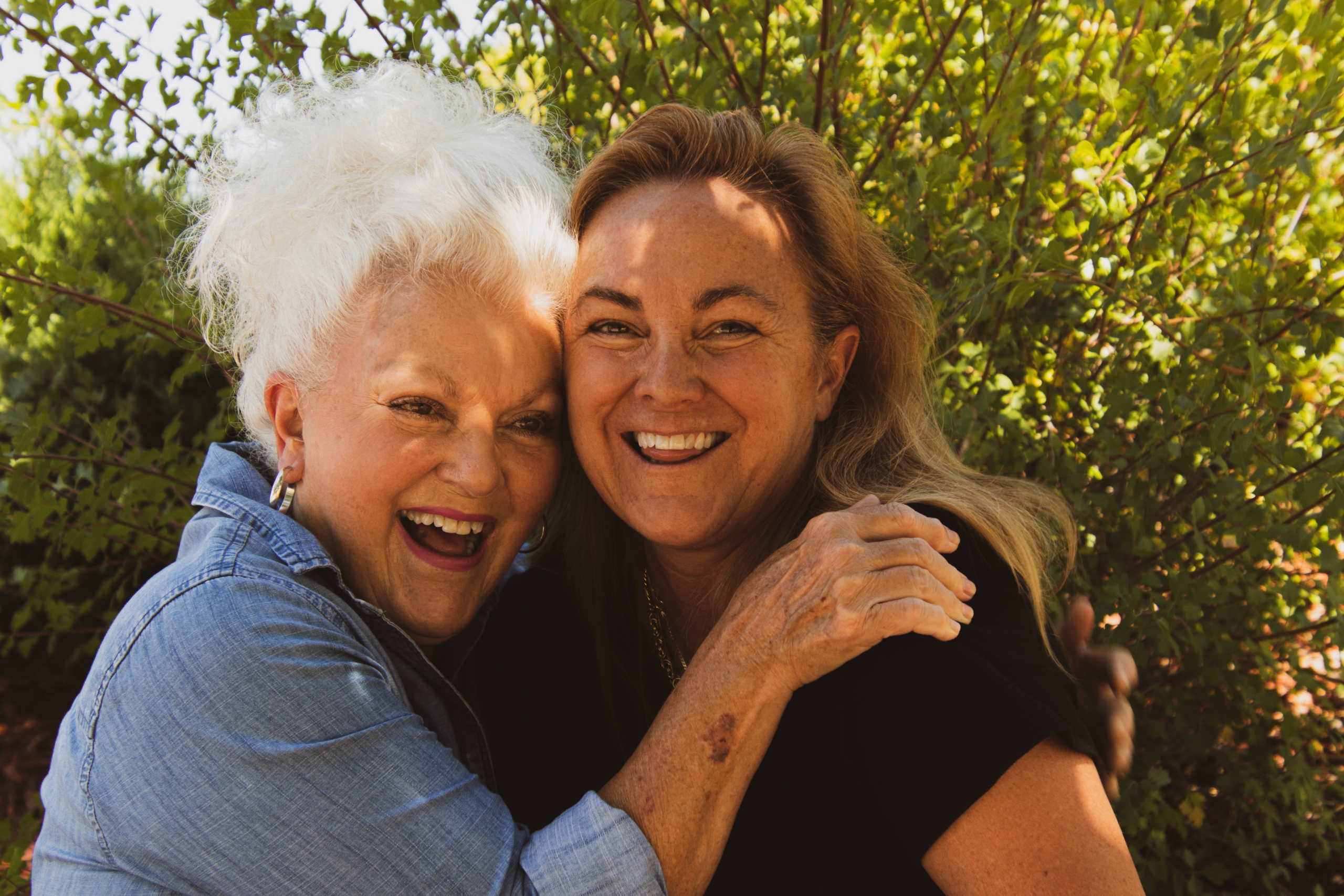Part 2 Red Flags Six-Eleven

Aging parents can be a challenge for any adult child. If you have aging parents, then you know that there are some red flags to look out for. It can be difficult enough to deal with aging parents, but when you start seeing red flags, it can be even tougher. In part 2 of this blog post series, I’ll be discussing red flags 6-11. Keep an eye out for these signs, and if you see them, don’t hesitate to reach out to your parents’ doctor or elder care specialist. Remember, it’s better to be safe than sorry!
In looking at these signs, it is best to review these every few months or when a life changing event has occurred such as a loss of a spouse. This can send the surviving spouse into a downward spiral and things could get out of hand. Make sure there is the extra support your parent might need. Another example is if one of the spouses were the caretaker of the other and the caring spouse has some health challenges or ends up in the hospital who will be caring for the other parent?
Let’s get into the last 6 Red Flags.

Red Flag #6 House Unkempt-Changes in Housekeeping
- As we age, it becomes more difficult to keep up with the things we once took for granted – like maintaining a clean and orderly home. If you notice that your aging parent’s home isn’t as clean as it used to be, it may be a sign that they need some help. Dusty surfaces, cluttered rooms, and dirty dishes are all red flags that indicate your parent may be struggling to keep up with basic housekeeping tasks. If you’re concerned about their ability to maintain a clean and safe home, talk to them about hiring a professional cleaning service or ask if there’s anything you can do to pitch in.
- We want to remember that we are looking for changes. Things out of the “norm”. Maybe they have always had a cluttered house. We are not wanting to judge anyone’s housekeeping habits we are just looking for what is different, new or what has changed.
- This can be a difficult issue to broach with your parents, but it is important to have an honest conversation about their capabilities and what kind of help they may need. If housekeeping is becoming too much for them to handle, there are a number of options available, from in-home care services to hiring a cleaner.
- By taking action early, you can help prevent a potential health and safety hazard and give your aging parent the peace of mind that comes with knowing their home is being well-cared for.
Quick Win: Plan to spend a day or two with your parents and take the 11 Signs Checklist and observe what is going on around the house. Use the checklist as a “check-up” for how things are going with your parent(s) living at home on their own.

Red Flag #7 Poor Hygiene, Odors Noticed
- One sign that your aging parents may need help in the home is if you notice that their hygiene is not as good as it used to be. If you see that they are looking disheveled or they have not been able to wash up or take a shower recently, it may be time to consider getting them some help. Additionally, if you find that your parents are wearing the same clothes day after day, this could be another sign that they need some assistance. If you start to notice any of these red flags, it is important to have a conversation with your parents about what kind of help they may need in order to maintain their health and well-being.
- A sign that your parents may be having trouble keeping up with their daily hygiene needs is you notice the smell or urine or other body odors. This of course is not a pleasant topic to address but it could mean something as simple as a urinary tract infection and not an indication that your parent needs help in the home. A urinary tract infection often has symptoms of “urgency” or having to go quickly, and your parent may not be quite making it to the bathroom. Other signs of a urinary tract infection are burning and frequency of urination. Lastly changes in cognition or their “mental state” could also be a sign of a urinary tract infection. Again, it is important to look for changes from the “norm”. Any of these “red flags” could indicate a health concern and should be addressed with the doctor or healthcare provider.
- As your parents age, you may start to notice changes in their appearance or hygiene. Other red flags to watch out for include weight loss, changes in sleep patterns, and a decline in their ability to perform everyday tasks. If you notice any of these changes, it’s important to have a conversation with your parents about their needs and how you can best support them.
Quick Win: If you notice urine odors that are new contact the doctor to see if a urine specimen is warranted and to check for a urinary tract infection.

Red Flag #8 Pet Cares Neglected
- Red flag number eight is when you notice pet cares may be neglected. This includes things like the litter box not being changed or water bowls being empty. Maybe the yard is not getting picked up like it used to. These are signs that your parents may be having trouble with the everyday activities at home. If you see these red flags, it’s important to talk to your parents about getting some help in the home. There are many ways to get help, from in-home care services to hiring a part-time worker. Don’t wait until things get too far out of hand – addressing the issue early on can help your parents age in place safely and comfortably. If your parents are having trouble caring for their pets and this was normally not the case, they may be having trouble dealing with other things at home as well. It is important again, to look at the root cause. Are they having trouble getting out of the house to pick up the yard? Are they having trouble getting to the store to pick up pet food and other groceries? Is driving getting more difficult?
- As we age, it becomes more and more difficult to keep up with the everyday tasks of life. For many of us, this includes caring for our beloved pets. If you notice that your parents’ pet care may be neglected, it could be a sign that they are having difficulty with the everyday activities at home. They may simply be spending less time playing with their pets. While this is not always an indication that your parents need assistance, it is important to be aware of the potential signs that their daily routine is becoming more difficult for them to manage. If you are concerned about your parents’ ability to care for themselves, please reach out to a professional for help.
Quick Win: Investigate free delivery or pick up for groceries at their local store and maybe someone like you or other family, a neighbor, friend, or church member could pick them up and bring them back to your parent(s). See if there is a “mobile” grooming truck that comes by or a pickup and delivery groomer in their area. Reach out their vet to find local pet care resources in their area.

Red Flag #9 Found Stove or Appliance Left On
- One common sign that aging parents may need help around the house is if you find that appliances have been left on such as the stove or coffee pot. This can happen to anyone, but the key here is if they’re “catching” it and able to problem solve and take action, or if they’re going about their day-to-day without realizing something was left on. If it’s the latter, it could be a sign that they’re having difficulty keeping track of things and could benefit from some assistance around the house. There could be some serious safety concerns here.
- If it’s something that your parents are regularly forgetting, it could be an indication that they’re having difficulty managing everything. If you’re concerned, talk to them about hiring some help with chores or look into hiring a home health aide. These are just a few of the many signs that your aging parents may need assistance in the home. With a little help, they can continue to live independently and safely for years to come.
Quick Win: Something as simple as having a permanent sticky note by the stove or coffee pot to remind them to turn it off when they are done may be enough to fix the problem. Again, be diligent in investigating this issue. Make sure your parents are able to contact emergency services if needed. A life alert or lifeline may also be a good safety mechanism to have in place especially if they are at risk for falls and being not able to get up. Average cost is about $35.00 per month depending on the unit you choose.

Red Flag #10 Missing Doctor’s Appointments
- One common sign that your aging parent may need help at home is if they start missing doctor’s appointments or failing to follow the doctor’s recommendations. It’s important to distinguish between conscious decisions and forgetfulness, as the latter can be indicative of a larger issue. If your parent is forgetful, it may be difficult for them to keep track of their medications or follow a treatment plan. This can lead to a decline in their overall health. Additionally, they may be less likely to exercise or eat a nutritious diet if they are struggling to remember to do so. If you notice your parent forgetting important appointments or neglecting their health, it may be time to consider hiring in-home care or finding a way to spend more time with them to sort out all the issues.
- This is especially true if they have difficulty remembering things or providing a reasonable explanation for why they’re not doing what they’re supposed to.
- If you’re concerned about your aging parent’s ability to live independently, don’t hesitate to reach out to a professional for help. We need to do a deeper dive into what the problems might be. Is it a driving or transportation issue? Is it forgetfulness and maybe a simple habit of putting things on a calendar will help? It is important to understand that each of these “red flags” does not necessarily mean a disaster is going on at home. These can be early warning signs that we need to pay attention to and put plans in place before we have a disaster. Simple changes and implementation may all that is needed right now. It is always better and less stressful to be proactive instead of reactive. These little changes will also help prepare your parents for bigger changes that may come down the road.
Quick Win: Keep a copy of their doctor’s appointments with you so you can offer reminders or assist with transportation to make sure they attend their appointments. You may consider scheduling them around your schedule so you can attend and get the latest information share with the healthcare team if you live close by. If you live out of town, consider asking the doctor if you could contact by phone or your parent’s cell phone and have the phone on speaker so you can hear what is going on at the appointment.

Red Flag #11 Missed Bill Payments Mail Piling Up
- As your parents age, it’s natural to worry about their wellbeing. You may not live nearby, but there are still ways to keep an eye on them from afar. One key sign that your aging parents may need help in the home is if you notice them missing bill payments or the mail piling up. This can be a sign that they are no longer able to keep up with their finances or manage their daily tasks. If you notice this happening, it’s important to check in with your parents and see if they need assistance. There are a number of ways you can help, such as setting up automatic bill payments or helping them sort through their mail weekly. By staying vigilant, you can help your parents age gracefully and independently in their own home.
- This could be a red flag because it can lead to financial problems down the road. If your parents are having trouble keeping up with their bills, offer to help them out or hire someone to do it for them. You can also talk to their doctor about any cognitive changes they may be experiencing that could be affecting their ability to handle finances. Keeping an eye on your parents’ finances is just one way you can help them stay independent and in their own home for as long as possible.
Quick Win: Consider having a “power of attorney for finances” drawn up by an estate attorney so that you can pay their bills. This would be a potential solution even if you do not live close to them. It will take a bit of work but the peace of mind would be worth it.
These signs or “red flags” are symptoms of other issues. It is our job to try and dig deeper to learn why these signs or red flags are occurring. Are they memory issues? Could they be physical changes that are causing things to be neglected? Is it a driving concern? Why has cooking become more difficult? If you ever need help in determining the issues, Your Nurse Advocate Consulting can help you figure things out and help you put a plan in place to deal quickly with the challenges.
Thanks for following along with us on our countdown of red flags that may mean it’s time for your aging parent to get some extra help in the home. We hope you found this information helpful and will keep it handy for review from time to time. If you have any questions or concerns, please don’t hesitate to reach out to us. Our team is here to support you and your family during this important transition period.
If you’ve been keeping an eye out for these Red Flags and have noticed a few changes in your aging parent’s behavior, it might be time to start thinking about home care assistance. We know this can be a difficult conversation to have, but the earlier you address the issue, the easier it will be on everyone involved. And don’t worry – we’re here to help make that transition as smooth as possible. To get started, grab our free checklist of 11 Signs Your Aging Parent Needs Help at Home. Review it from time to time so that you can stay ahead of any potential problems and provide the best possible support for your loved one.
As you complete your assessment of your parent’s needs you may be ready for the next step, identifying resources and putting a plan in place. We have another FREE Resource for you that is a PDF Guide and Workbook to help you pin down the needs, identify the resources, and lastly begin to put a plan in place. If you are ready for this next step, you can request the Guide HERE we are always here to assist is any part of the process and give you expert advice along the way.
Take care and thanks for spending some of your precious time here. We strive to bring you value in everything we share so I hope this has been no exception! We will see you back here soon. If you would rather watch a video than read a post, try checking out our YouTube Channel for more content.
Take care,
Pam and Linda
Your Nurse Advocates
Linda and I have a combined total of more than 80 years of R.N. experience in many areas of healthcare such as home health, hospice, emergency room, acute care, case management, utilization review and quality improvement and executive nursing. We are here to help.
Resources:




